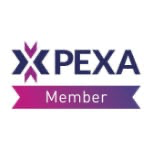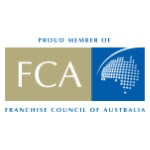After much anticipation and almost 3 years after the commencement of a joint Parliamentary inquiry into the franchise sector, on 1 June 2021 the final changes to the Franchising Code of Conduct (Code) have been released by the Australian Government.
With under one month to go to prepare and update franchise documents, franchisors should act now! Here is a summary what you need to know:
From 2 June 2021:
New alternative dispute resolution (ADR) provisions take effect from 2 June 2021. Increased resolution avenues for franchisors and franchisees apply. These include voluntary arbitration, conciliation, and multi-party ADR that can be conducted by means of virtual attendance technology. These changes apply to all disputes notified on or after 2 June 2021, regardless of when the agreement was entered into.
The Australian Small Business and Family Enterprise Ombudsman (ASBFEO) will now oversee all dispute resolution advisor functions. The Ombudsman must appoint an ADR practitioner within 14 days of any request to resolve a dispute. The Ombudsman, Bruce Billson, has welcomed the amendments, stating they “will help level the playing field across the franchising sector… addressing the power imbalances that often exist between franchisees and franchisors, particularly when disputes arise”.
From 1 July 2021:
To increase transparency for franchisees, the process that applies in granting a franchise will change as follows:
- An updated Information Statement must now be provided to prospective franchisees prior to any other documents being provided, including the disclosure document and the franchise agreement
- A new Key Facts Sheet must also be given to franchisees. Failure to do so now attracts civil penalties. The sheet must be updated within 4 months of the end of the financial year. You can access the Key Facts Sheet template which will be available online on the Australian Competition and Consumer Commission (ACCC) website.
- Capital expenditure requirements must be discussed and appropriately disclosed (unless certain exceptions apply).
- A longer cooling-off period of 14 days applies (instead of the previous 7 days) and the cooling-off period will only begin on franchisees receiving necessary documentation including, where relevant, the terms of leases or occupancy rights.
- Additional information must now be given in relation to leasing arrangements.
- Documents need to be provided in formats requested by the franchisee (electronic and/or hard copy).
From 1 July 2021:
All franchise agreements entered into or renewed or extended from this date must be amended to reflect the numerous changes to the Code, including:
- 7 days’ notice must be given by franchisors for terminations in special circumstances, with a new prohibition on terminating the agreement for 28 days where there is a dispute.
- Franchisors will be prohibited from passing on certain legal costs associated with the preparation, negotiation and execution of a franchise agreement unless clearly documented as a fixed amount in the franchise agreement. Ongoing costs are unlikely to be able to be passed on.
- New cooling-off rights (including for transfers) and longer cooling-off periods apply in certain situations.
- Amendments to the franchise documents cannot apply retrospectively without the consent of the franchisee.
- Further narrowing of the circumstances in which a restraint of trade can be enforced will apply.
From 1 November 2021:
- Earnings information must be provided at the same time as the disclosure documentation. The 14 day disclosure period will now commence from the date all information, including earnings information, is provided by a franchisor.
- Additional information must be disclosed regarding disclosure of disputes between a franchisor and franchisee, leasing arrangements (especially where the franchisor holds the lease), goodwill, the term, early termination arrangements and capital expenditure.
- Additional information is required regarding rebates, (including how these are calculated and whether and how these are shared with franchisees).
Penalties – remain unclear
Greater penalties will apply, including failing to comply with new marketing fund requirements. The proposal to double other maximum penalties (from $66,600 to $133,200) and increase to fines to $10 million or more for breaches of the Code is not reflected in the new Code available at the time of this article.
The Code can be found by accessing the following link: Competition and Consumer (Industry Codes—Franchising) Amendment (Fairness in Franchising) Regulations 2021.





